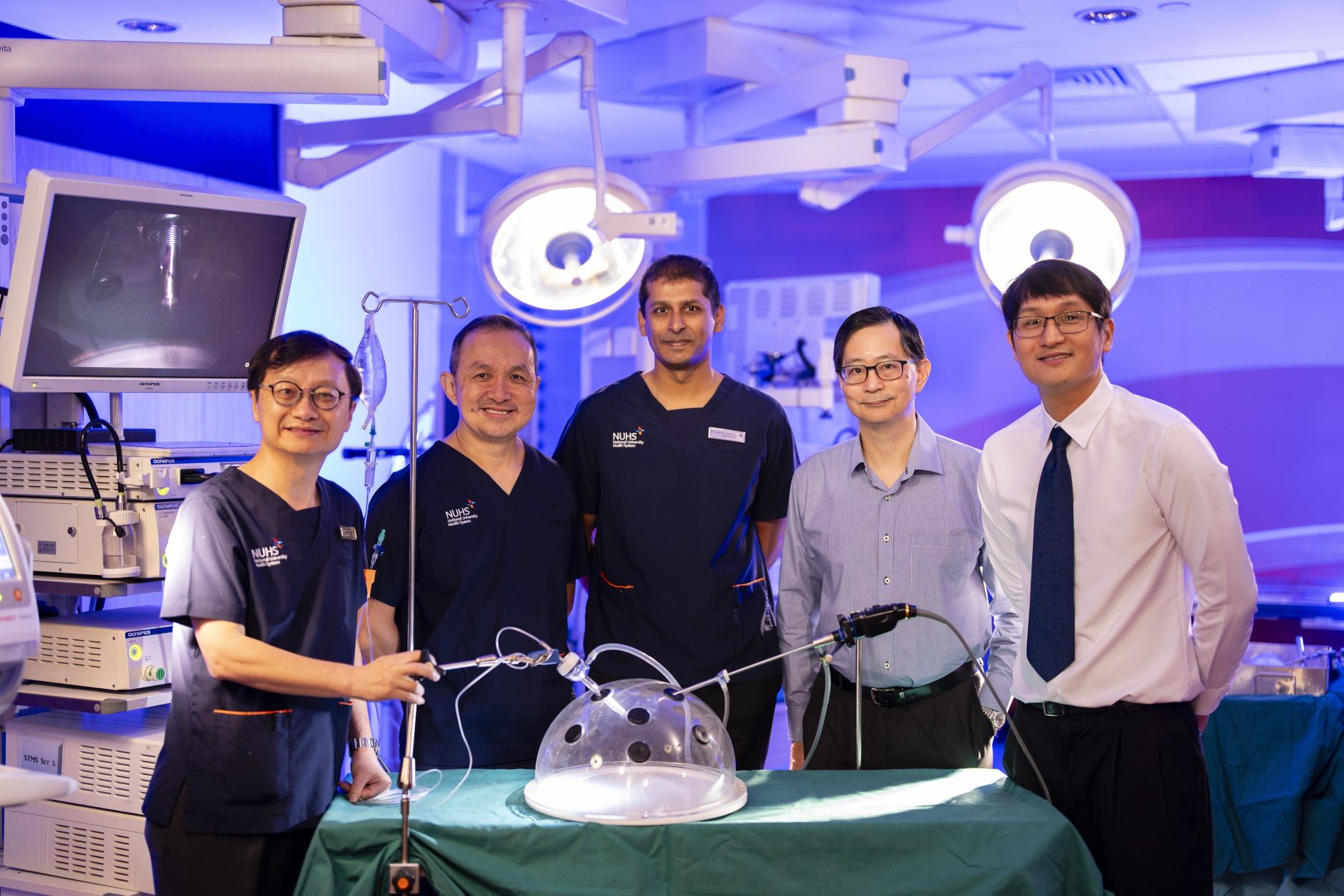Clinicians and scientists uncover how gastric cancer spreads to the
peritoneum, enabling the development of a novel treatment approach.
Issue 7 | December 2024

 Subscribe and ensure you don't miss the next issue!
Subscribe and ensure you don't miss the next issue!
The peritoneum — the inner lining of the abdomen — is one of the most common places where gastric cancer spreads. Ranked as one of the top 10 causes of cancer-related deaths in Singapore, gastric cancer disease claims about 300 lives each year. Patients diagnosed with gastric cancer peritoneal metastases (GCPM), a particularly aggressive form of the condition, often live for three to six months, with five-year survival rates rarely exceeding five per cent.
Until recently, how gastric cancer spreads to the peritoneum has remained largely unknown, which has hamstrung efforts to develop effective treatments. In a breakthrough study, clinicians and researchers from the National University Hospital (NUH), the National University Cancer Institute, Singapore (NCIS), the Yong Loo Lin School of Medicine, National University of Singapore (NUS Medicine), the National Cancer Centre Singapore (NCCS), and Duke-NUS Medical School have unveiled the biological processes driving GCPM.
More importantly, understanding the nuts and bolts of GCPM has laid the groundwork for a novel treatment that targets the cells surrounding the tumour more effectively. A clinical trial was recently conducted to evaluate the safety and efficacy of this approach.
Unravelling a long-kept mystery
To decipher the workings of GCPM, the research team analysed 548 tissue samples from 326 gastric cancer patients using advanced genomic and transcriptomic profiling techniques.
“We identified the biological processes that allow cancer cells to migrate from the stomach to the peritoneum through a process known as transcoelomic metastasis,” says Professor Jimmy So, Head & Senior Consultant, Division of General Surgery (Upper Gastrointestinal Surgery), Department of Surgery, NUH. “Our study also found specific genetic mutations and characteristics within the tumour microenvironment — the network of cells surrounding a tumour — that facilitate the spread of cancer cells within the peritoneal lining.”
The team also isolated predictive biomarkers that could allow earlier assessment of the risk of peritoneal metastasis, as well as therapeutic targets that could be used to develop personalised treatment strategies.
Moving from bench to bedside
Guided by their findings from the GCPM study, the researchers formulated a novel treatment strategy that combines a minimally invasive surgical technique, called pressurised intraperitoneal aerosol chemotherapy, with systemic immunotherapy.
The treatment involves delivering chemotherapy as a fine mist directly to the peritoneal cavity, which increases localised drug concentration, allowing for better penetration into tumour tissue while reducing exposure to the rest of the body. Paired with nivolumab, an immunotherapy drug that activates the body’s immune response against cancer cells, this treatment enhances immune cell infiltration and reduces immune-suppressive cells that would otherwise promote tumour growth.
A clinical trial involving 18 patients across three centres in Singapore and Belgium, was conducted between June 2020 and November 2022 to evaluate the effectiveness of this approach.
“The results were encouraging, demonstrating that the new treatment was well-tolerated and effective in reducing tumour burden for some patients. Analysis of post-treatment tumour samples also revealed an increase in T-cell infiltration — indicating a positive immune response against the cancer,” says Prof So. “We believe that further clinical trials are warranted to develop this approach for patients with GCPM, and we look forward to refining it into a viable treatment option.”
Like this article? Simply subscribe to make sure you don't miss the next issue of EnvisioningHealth!




















